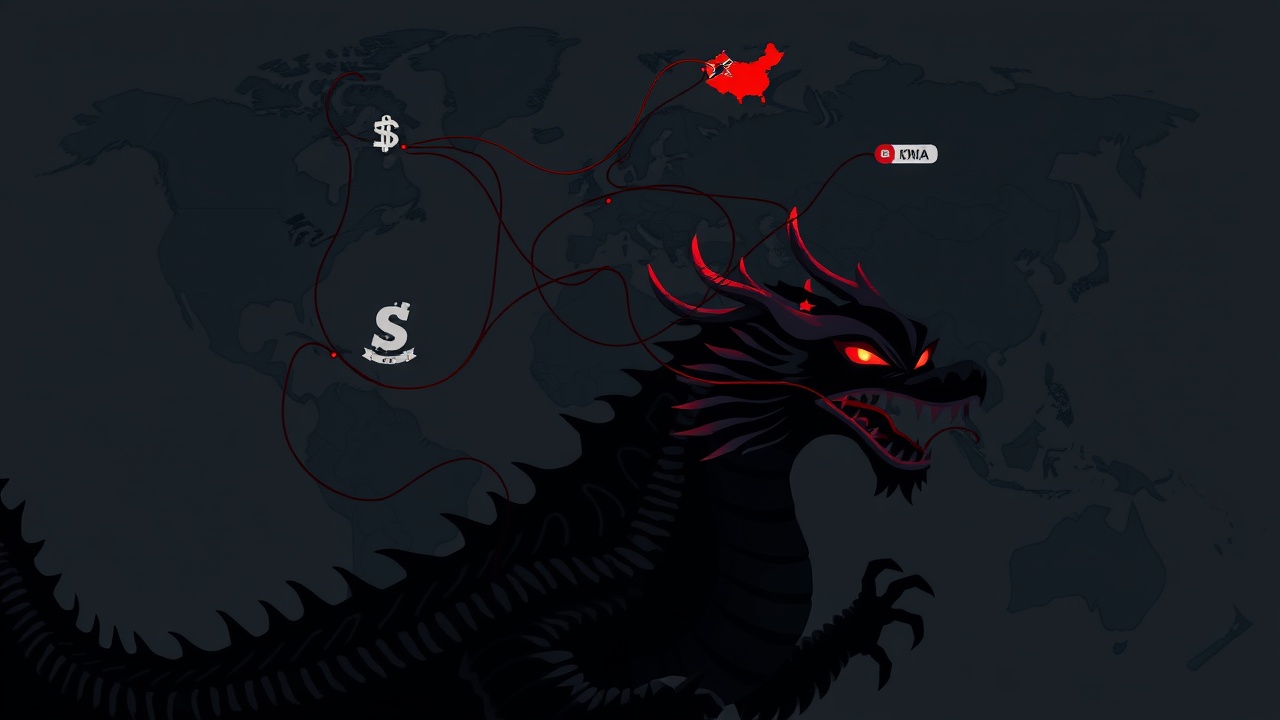Introduction
Recent research reveals a troubling link among diverse criminal entities, including North Korean hackers, Mexican drug trafficking organizations, Russian criminals, and online scammers impersonating bosses: they all heavily rely on the underground Chinese financial networks to launder their extensive cryptocurrency earnings. Despite the perception of cryptocurrency as an untraceable and borderless platform for illicit transactions, most major criminal enterprises utilizing these digital assets would struggle to operate without the advanced laundering systems established by Chinese underworld factions, as highlighted by blockchain analytics firm TRM Labs.
Interconnected Criminal Activities
Ari Redbord, the global head of policy at TRM and a former government official with extensive experience, emphasizes that U.S. authorities have overlooked the interconnectedness of these illicit actors. According to him, treating these crimes as unrelated categories—such as drug offenses, cybercrimes, and scams—fails to acknowledge the vital role that Chinese money-laundering infrastructures play across the board. Redbord stated during an interview,
“We’ve been treating fentanyl like a drug crime, we’ve been treating North Korea like a cyber crime, we’ve been talking about pig butchering like scams. It’s time for a unified approach to understanding how these threats utilize the same laundering networks.”
High-Profile Cases
A striking case that illustrates this issue is North Korea’s monumental hack in February, where approximately $1.4 billion in Ethereum was stolen from the crypto platform Bybit. While this event raised serious concerns regarding North Korea’s capabilities in cyber theft and the involvement of third-party exchanges in facilitating the illicit conversion of stolen funds, it’s important to note that the actual laundering was executed by sophisticated Chinese groups, not the hackers themselves. Nick Carlsen, a senior investigator with TRM Labs and a former FBI analyst, clarified that individuals utilizing services like Thorchain to convert stolen Ethereum into Bitcoin are actually the Chinese money launderers, not North Korean operatives.
The Role of Chinese Money Laundering
These informal banks managed by triads, a type of organized crime syndicate in China, have refined the process of transforming stolen cryptocurrency into fiat currency that can be utilized by Chinese nationals seeking to bypass restrictions in their financial system. Carlsen elaborated on the operational dynamics, explaining,
“If you’re Chinese and you want to buy a million-dollar house in L.A., you run through these guys. That’s how you get access to money in the United States.”
Impact on Criminal Organizations
Furthermore, TRM’s analysis indicates that dismantling these laundering networks could significantly disrupt not just North Korean operations but also Mexican cartels like the infamous Sinaloa Cartel, which relies on transferring stablecoins like Tether’s USDT for their activities. Carlsen underscored the potential impact by stating,
“It would be a gut blow”
to these organizations if their financial pipelines were obstructed.
Strategies Against Money Laundering
To that end, TRM proposes that U.S. authorities could feasibly target these laundering frameworks, particularly those based in Southeast Asian countries known for being safe havens for such operations. Although recent reports suggested that the Chinese government is intensifying its efforts against cryptocurrency-related money laundering, skepticism remains regarding its effectiveness due to China’s extensive surveillance capabilities and the enduring prevalence of these illicit operations.
Carlsen argues that an offensive strategy might be the most effective counter-response, advocating for the U.S. to mimic the methods employed by North Korea’s Lazarus Group, a state-backed organization known for executing cyberattacks. He contended that a strategic approach, akin to what adversaries do, would be vital in crippling the financial capabilities of both hostile nations and organized crime syndicates.
Conclusion
U.S. officials have consistently indicated an intent to disrupt the illicit financial channels of adversarial states like North Korea and criminal entities importing fentanyl into the U.S. Unfortunately, according to TRM, current policies within federal agencies like the FBI, DEA, and the Treasury do not adequately address Chinese crypto laundering as a unified threat, allowing the situation to persist unchecked. Carlsen lamented,
“It falls in the seams between all of them, and so it goes unpursued.”
This glaring oversight has raised alarms about the operational freedom granted to both state adversaries and organized crime factions as authorities grapple with the complexities of modern financial crime.

















